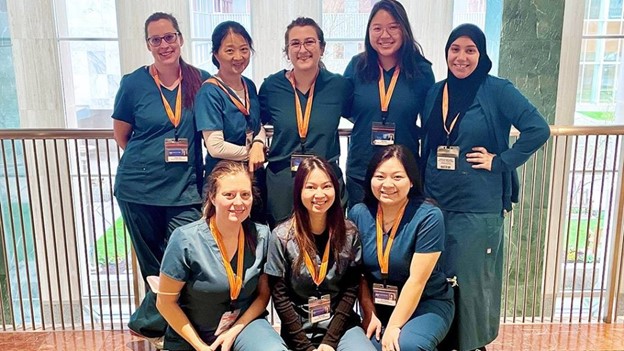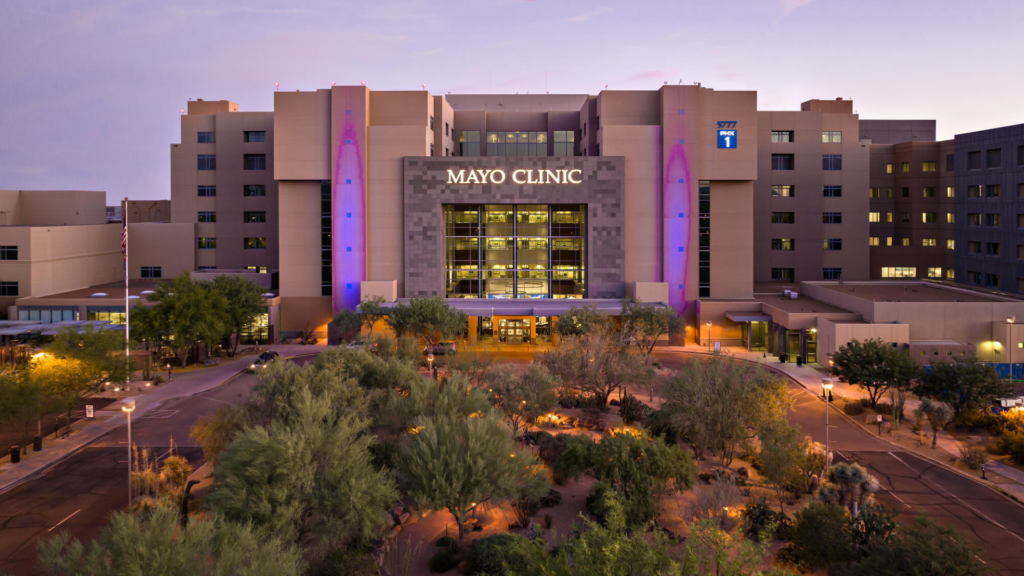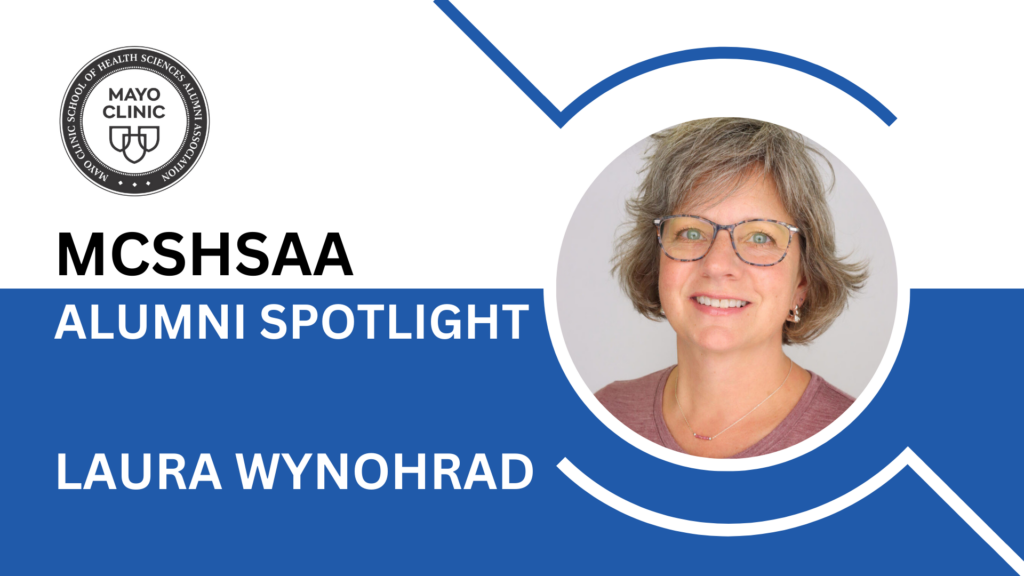
Mayo Clinic School of Health Sciences (MCSHS) launched an MRI Program in 2021 to help address a shortage of MRI technologists that goes well beyond Mayo Clinic. The program recently graduated its first class of eight students.
Nicole L. Fischer (NUMT ’01), a program manager for Radiology Education and Staff Development, was part of the team that proposed the creation of the program after the American Registry of Radiologic Technologists created accreditation criteria for MRI programs. That created a path for the MCSHS MRI training program.
“We were looking at staffing shortages and trying to determine where we could recruit candidates,” says Fischer. “There were no other accredited MRI programs across the state, and the number nationally is quite low. So if there isn’t one, let’s build it and see if it works.”
The new program pairs classroom instruction with 96 hours of laboratory work and 900 hours of clinical work in inpatient and outpatient settings. Students get hands-on experience during MRI scanning sessions in the Opus Building, which primarily is a research hub for the Department of Radiology. For clinical work, students go to the Charlton North, Charlton and Gonda buildings, where they work in inpatient and outpatient areas.
“Students apply what they are learning in class and lab with their instructors into clinical practice,” says Jacqueline Burnes, R.T. (MR), a program coordinator for the MRI Program.
Burnes says the program’s integration with Mayo Clinic is an added selling point for prospective students.
“We offer unparalleled clinical experience with opportunities to perform a high volume of exams and work on high-end, advanced equipment,” she says. “Students wouldn’t be able to see this anywhere else outside of Mayo Clinic.”
Students also collaborate with radiologists and physicists.
“Our students learn about physics from the physicists who are working in MRI along with technologists, and by performing MRI research,” Burnes says. “It is a unique experience to be able to learn about scanning a patient with an implanted device and then go out to the clinic and sit down next to the physicist who was giving the lecture for hands-on experience.”
The program’s first class included: Tham Duong (MRI ’22), Nourhan Halawa (MRI ’22), Amela Hamzagic (MRI ’22), Daisy Lin (PHLB ’18, MRI ’22), Quyen T. Nguyen (PHLB ’20, MRI ’22), Mia Otzen Rossi (MRI ’22), Ashlie Perzynski (MRI ’22) and Angela Tichy (MRI ’22).
The program offers a streamlined process into the MRI profession by earning an associate’s degree or higher and completing an approved educational program. Graduates have to pass the American Registry of Radiologic Technologists’ MRI certification exam to begin working in the field.
“At the end of the program, graduates are entry-level technologists who are ready to sit for boards,” says Jennifer J. Myers, R.T. (MR) MRI clinical coordinator.
While the program focuses solely on training students to be MRI technologists, there is room for growth within the field for graduates, Burnes says.
“Technologists can do research, work with high-field-strength MRI, PET (positron emission tomography)/MRI, neonatal scanning, education and more,” she says. “It’s exciting to see the program bear fruit,” Fischer says. “We’re glad the students took a chance on this new program and look forward to welcoming a new group for the second year.”





